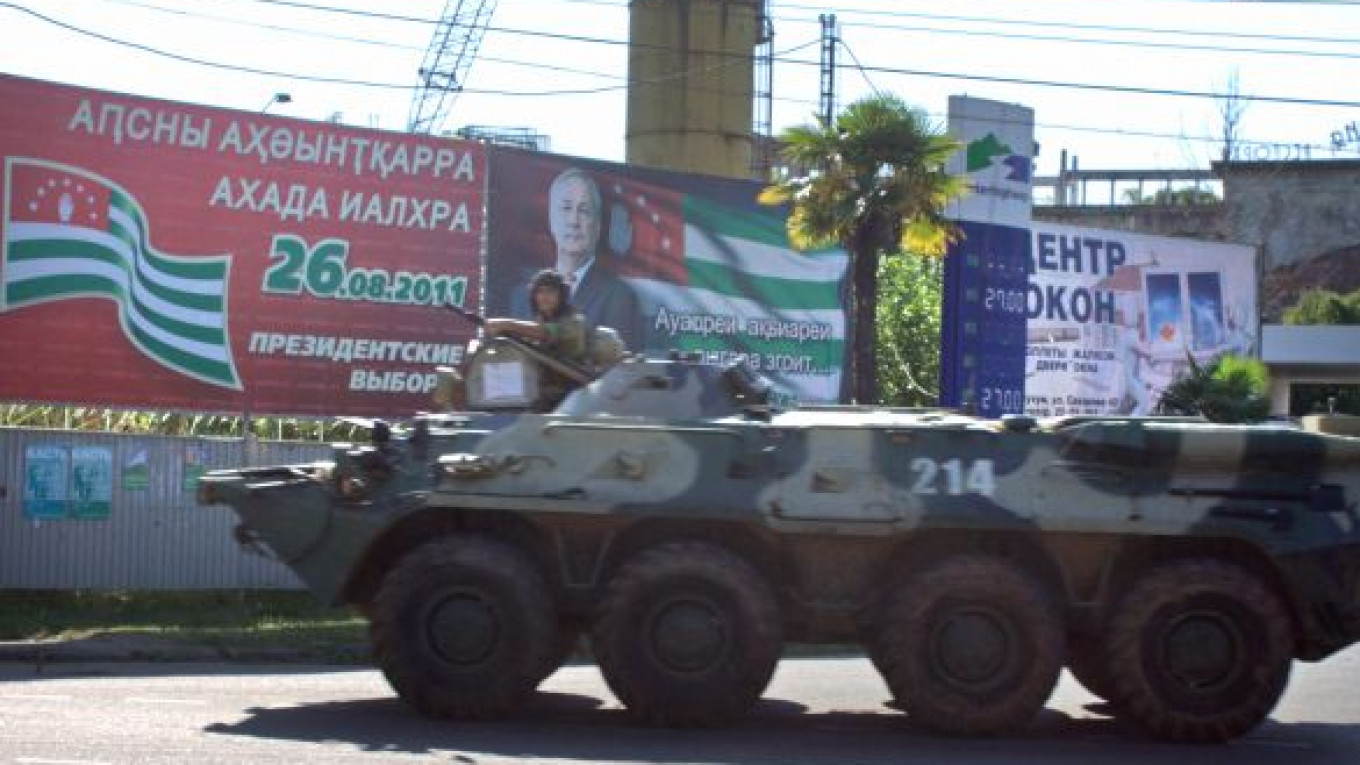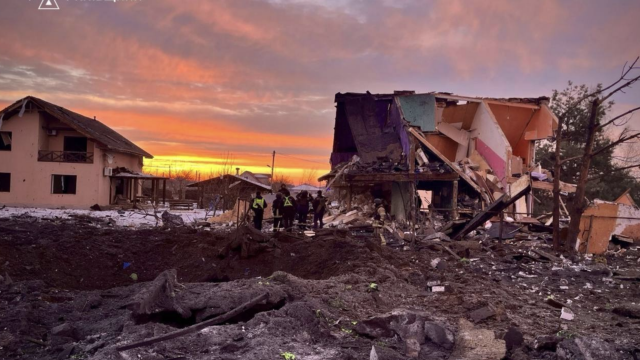VERKHNYAYA ESHERA, Abkhazia — After a colorful campaign with allegations of treason, fraud and corruption and even an appeal by pagan priests, voters in Abkhazia will decide on a new leader for the Georgian breakaway region this Friday.
The outcome appears to be open, and analysts said Thursday that it was hard to say whether a second round would be necessary. A second round is required if no candidate gets more than 50 percent of the vote.
Opinion polls that vice president Alexander Ankvab and prime minister Sergei Shamba will both garner more than 20 percent, while Raul Khadzhimba, a former vice president who styles himself as the lone opposition candidate, is trailing at less than 10 percent.
Observers cautioned, however, that no independent polling has been conducted in the tiny republic with a population of just over 200,000 people. "There is no clear leader," said Alexander Krylov, an analyst with the Academy of Science's Institute of the World Economy and International Relations.
The three candidates signed an agreement for fair and clean elections in July. But the campaign deteriorated earlier this month when the Shamba campaign questioned Ankvab's integrity following allegations that he worked as an undercover agent for the central government in Tbilisi during the region's secessionist war of 1992-93. Ankvab served as Abkhazia's top police official at the time, and the allegation was voiced by former Georgian Defense Minister Tengiz Kitovani.
Ankvab has dismissed the claim, which also surfaced when he first ran for president back in 2004.
The Kremlin has abstained from endorsing any candidate, and the Foreign Ministry merely said Thursday that it hoped the vote would be "calm and competitive," Itar-Tass reported.
In a bizarre twist, a group of elders said the candidates should swear an oath at a pagan prayer site that they have never committed treason.
The suggestion was publicized on Abkhaz television earlier this week by Zaur Chichba, considered the most senior representative of the region's lingering animist cult.
Shamba and Khadzhimba then rushed to say they were ready to do so, while Ankvab sidestepped the issue Thursday.
Ankvab will not comment as long as the elders do not ask him directly, his campaign manager Leonid Lakerbaia said Thursday. "We have not received an official request," he said by telephone from Sukhumi.
A majority of Abkhaz residents say they are Orthodox Christians, while less than 30 percent regard themselves as Muslim, but experts say animist beliefs still run deep.
"The elders' influence is less than 10 years ago, but they still command great moral authority," Krylov said.
Candidates also openly accused officials of corruption and warned of fraud during the election.
"Our bureaucrats drive expensive cars and build palaces for themselves — they are stealing what belongs to you," Khadzhimba said this week at a rally in Verkhnyaya Eshera, a village west of Sukhumi.
Shamba and Ankvab, who both hold senior government posts, admit that corruption is a problem and have promised to replace wrongdoers.
Khadzhimba and Shamba have also broached irregularities in the preparation by saying voter lists contain hundreds of dubious names, many clearly belonging to people who "died long ago."
The Black Sea region has seen a modest economic upswing since 2008, when Moscow recognized Abkhazia as independent following a short war with Georgia over its other separatist province, South Ossetia.
The Kremlin has since stationed thousands of troops and spent large amounts of money in both regions. In Abkhazia, the funds cover half of all government spending.
No country save Nicaragua, Venezuela, Nauru and Vanuatu has followed Russia's decision to recognize Abkhazia's independence, and Georgia has made it that it sees the election as an illegitimate vote held on occupied territory.
Georgian President Mikheil Saakashvili added fuel to the fire this week by describing the Russian troops in Abkhazia as "barbarians."
"On that side are barbarians, on this side is civilization. On that side is a Mongoloid ideology … and on this side genuine, ancient Europe," he said Monday during the opening of a large beach resort in Anaklia, close to the border with Abkhazia, civil.ge .
Neither the comments nor the Anaklia resort, which Tbilisi is touting as a peaceful response to the military buildup in Abkhazia, played a role in the election campaign.
Khadzhimba told The Moscow Times on Thursday that he was unaware of Saakashvili's remarks. Asked to comment, he said they cast doubts on the Georgian leader's mental health.
A Message from The Moscow Times:
Dear readers,
We are facing unprecedented challenges. Russia's Prosecutor General's Office has designated The Moscow Times as an "undesirable" organization, criminalizing our work and putting our staff at risk of prosecution. This follows our earlier unjust labeling as a "foreign agent."
These actions are direct attempts to silence independent journalism in Russia. The authorities claim our work "discredits the decisions of the Russian leadership." We see things differently: we strive to provide accurate, unbiased reporting on Russia.
We, the journalists of The Moscow Times, refuse to be silenced. But to continue our work, we need your help.
Your support, no matter how small, makes a world of difference. If you can, please support us monthly starting from just $2. It's quick to set up, and every contribution makes a significant impact.
By supporting The Moscow Times, you're defending open, independent journalism in the face of repression. Thank you for standing with us.
Remind me later.







